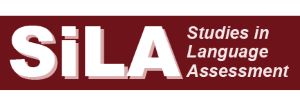Investigating cognitive processes in different item formats in reading tests through eye-tracking and verbal protocols
Hatice Akgün, School of Foreign Languages, Marmara University, Istanbul, Turkey
Aylin Ünaldı, School of Education and Professional Development, University of Huddersfield, Huddersfield, UK
Aylin Ünaldı, School of Education and Professional Development, University of Huddersfield, Huddersfield, UK
|
https://doi.org/10.58379/UIXK2220
|
Volume 11, Issue 2, 2022
|
Abstract: This study has investigated the differences in cognitive processes that test-takers undergo while answering reading comprehension questions in multiple-choice and open-ended short answer formats. For this purpose, data were collected from a group of undergraduate students in an English medium university through eye-tracking technology, immediate retrospective verbal protocols, and short semi-structured interviews. The results showed that the participants used careful reading skills more and comprehended the text more thoroughly in the open-ended format. However, in the MC format, they read less carefully and used more test-taking strategies. These findings contribute to the ongoing discussion on how item format can alter the cognitive processes in a reading comprehension test and confirm the effectiveness of eye-tracking in unveiling cognitive processes in combination with qualitative methods. This study has implications for reading test development.
Keywords: Eye-tracking in reading, reading processes, item format effect in reading tests, cognitive validity in reading tests
